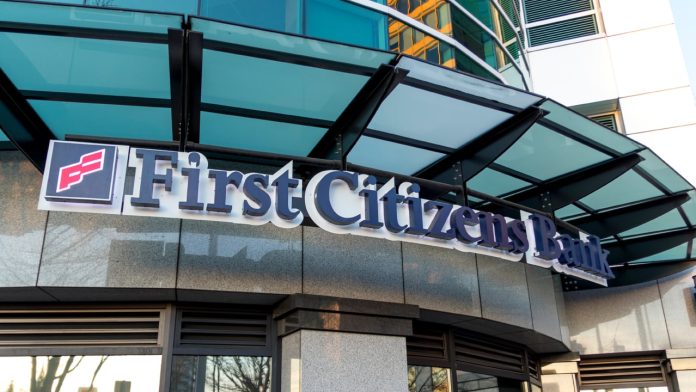The Federal Deposit Insurance Corporation (FDIC) has reported that First Citizens Bank & Trust Company, based in Raleigh, North Carolina, has acquired the troubled Silicon Valley Bank (SVB). The FDIC claims that First Citizens purchased all deposits and loans from SVB, as well as the 17 branches across the United States.
First Citizens Bank Purchases Silicon Valley Bank in FDIC-Assisted Deal
The FDIC has announced that First Citizens Bank has taken over Silicon Valley Bank (SVB) following the acquisition of Signature Bank by Flagstar. As of March 10, 2023, SVB had $167 billion in total assets and approximately $119 billion in total deposits. FDIC officials confirm that First Citizens Bank purchased $72 billion worth of SVB’s assets “at a discount of $16.5 billion.” Around $90 billion in securities and other assets will remain in receivership with the FDIC. The FDIC has also obtained “equity appreciation rights in First Citizens Bancshares, Inc.” with a value cap of $500 million.
Prior to the acquisition, Valley National Bancorp had also expressed interest in purchasing the California-based bank. However, First Citizens’ CEO Frank Holding Junior has stated that his company will continue to support venture capital (VC) firms. “We are committed to building upon and preserving the strong relationships that legacy SVB’s global fund banking business has with private equity and venture capital firms,” Holding Junior declared.
Silicon Valley Bank Could Be One of the Most Costly Failures in U.S. History
The FDIC has reported that it estimates the “cost of the failure of Silicon Valley Bank to its Deposit Insurance Fund (DIF) to be approximately $20 billion.” This figure will be determined once the FDIC ends its receivership relationship. Joey Politano, an economics author, believes this amount could make SVB one of the most expensive failures in U.S. history. “This would make it the costliest bank failure in U.S. history, surpassing Indymac’s ’08 failure (which cost $12.4B) and consuming 14% of the insurance fund, which is financed through an assessment on banks,” Politano said.
Susannah Streeter, head of money and markets at Hargreaves Lansdown, wrote in a note sent to Bitcoin.com News that the SVB acquisition has brought “some respite to the beleaguered banking sector.” Streeter added that the regulator may have more “capacity to deal with problems still threatening to pop up elsewhere, particularly with U.S. regional banks.” However, the Hargreaves Lansdown market analyst warned that there are big concerns about “unrealised losses” in the U.S. banking system.
“It’s feared that the commercial real estate sector could be the next weakest link as debt matures over the next few years and will need to be refinanced in a market where rates have soared, while valuations have fallen, and there is a lot less money sloshing around,” Streeter said.
What do you think about the acquisition of Silicon Valley Bank by First Citizens Bank and the estimated $20 billion cost to the Deposit Insurance Fund? Share your thoughts about this subject in the comments section below.
Image Credits: Shutterstock, Pixabay, Wiki Commons, EchoVisuals / Shutterstock.com
Disclaimer: This article is for informational purposes only. It is not a direct offer or solicitation of an offer to buy or sell, or a recommendation or endorsement of any products, services, or companies. Bitcoin.com does not provide investment, tax, legal, or accounting advice. Neither the company nor the author is responsible, directly or indirectly, for any

